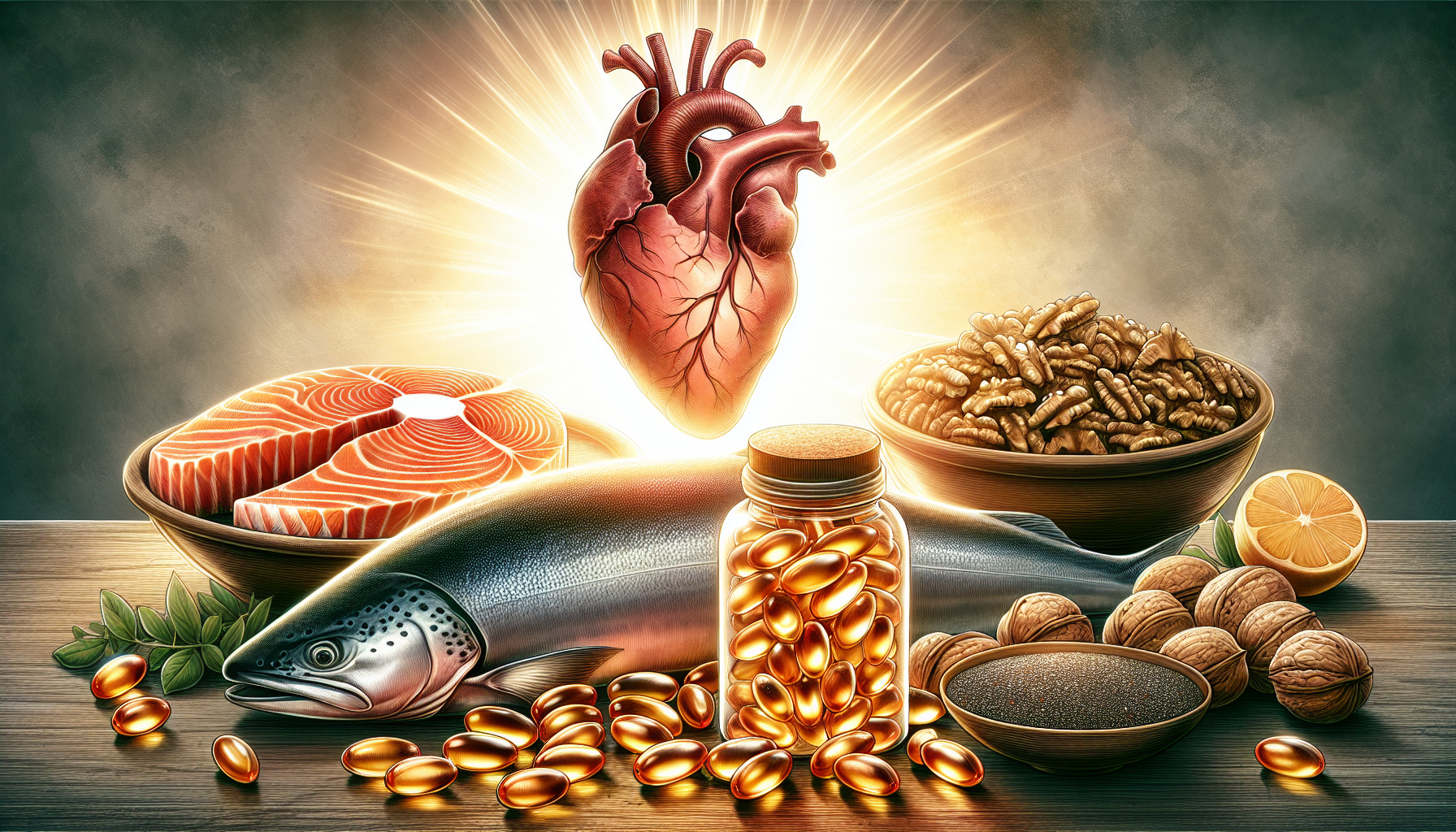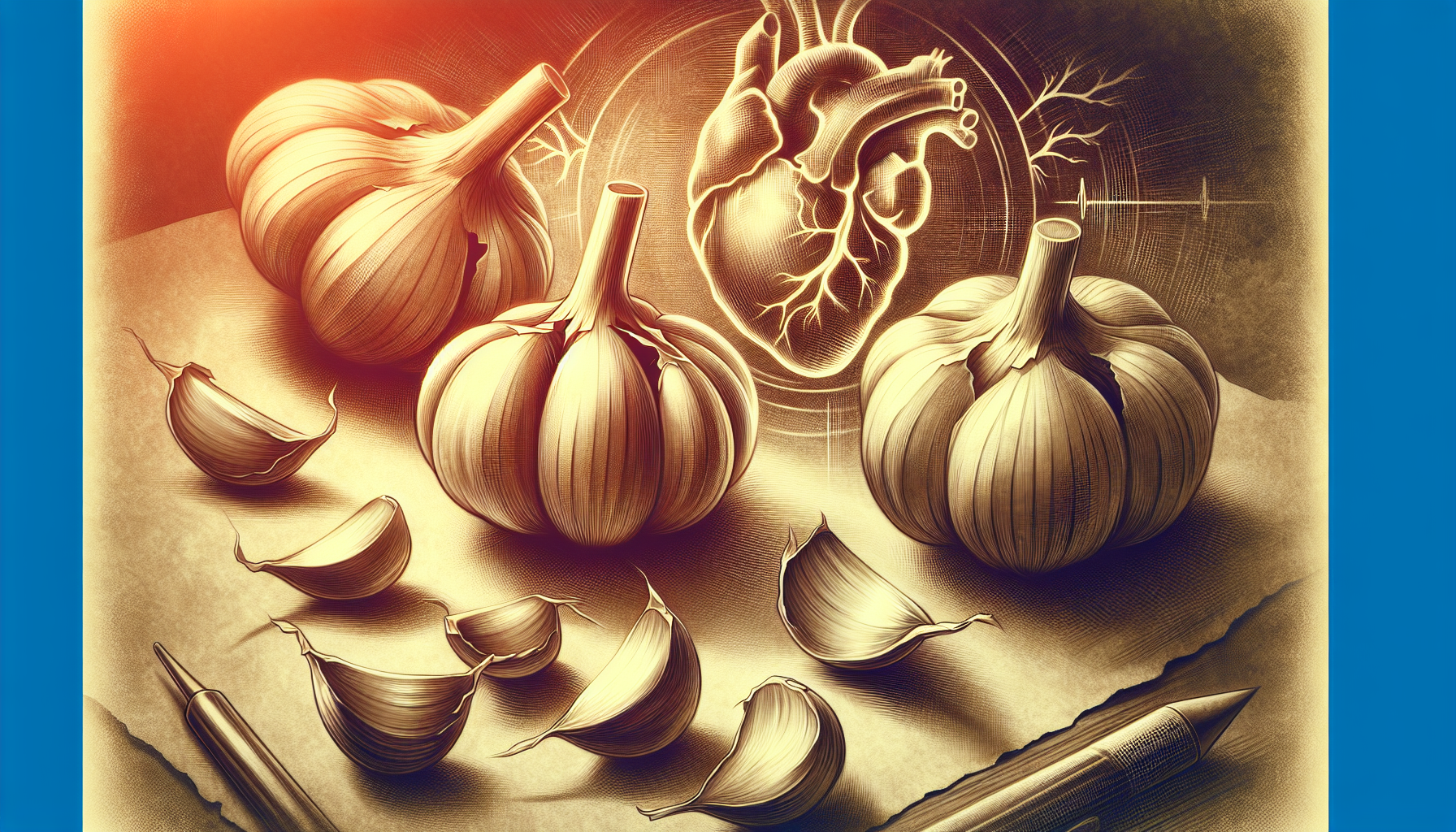Choosing the right dietary supplements to manage high cholesterol can be confusing. From red yeast rice to omega-3s, the options are endless and promise to lower cholesterol and improve heart health. But it’s not just about choosing a supplement; it’s about how these options fit into your overall health plan. This guide gives you expert advice and guidance to find the best supplement for high cholesterol. We focus on efficacy, safety, and science so you can make informed decisions that align with your heart health and cholesterol management goals.
Cholesterol isn’t just one thing; it’s multiple types, and LDL (low-density lipoprotein) is often referred to as the ‘bad’ and HDL (high-density lipoprotein) as the ‘good’. Managing your cholesterol means reducing LDL and increasing HDL to get everything in balance. Supplements like fish oil, plant sterols, and soluble fiber like psyllium are part of a bigger plan that includes dietary changes and lifestyle tweaks. Always consult with healthcare providers before taking cholesterol-lowering supplements, especially if you’re on prescription medication. With this approach, you can achieve better heart health, manage cholesterol levels, reduce your risk of heart disease, and improve your overall well-being.
Key Takeaways
- Cholesterol management involves increasing HDL (‘good’) levels and reducing LDL (‘bad’) levels; supplements can play a supporting role alongside diet and lifestyle changes.
- Various supplements such as plant sterols, omega-3 fatty acids, and soluble fibers like psyllium can contribute to lowering LDL cholesterol. Still, it’s essential to consult healthcare providers due to potential medication interactions.
- Beyond supplementation, a holistic approach involving a balanced diet, regular physical activity, and avoiding trans fats is crucial for effective cholesterol control and overall heart health.
Understanding Cholesterol and Supplements

Cholesterol is a word that often triggers health alarms yet remains a mystery for many. This waxy substance in our blood is vital in building cells and hormones, but an excess can lead to trouble. Imagine LDL cholesterol as a troublemaker, clogging our arteries, while HDL cholesterol is a diligent janitor, tidying up our bloodstream.
Now, how do we find the balance? Enter cholesterol-lowering supplements, the potential allies in our quest for cardiovascular well-being. Some popular cholesterol-lowering supplements include:
- Red yeast rice
- Plant sterols and stanols
- Garlic extract
- Omega-3 fatty acids
- Niacin
These supplements have been shown to help lower LDL cholesterol levels and promote heart health. However, consulting a healthcare professional before starting any new supplement regimen is important.
However, remember that these supplements don’t serve as a standalone solution. They are part of a heart-healthy ensemble, complementing diet and lifestyle modifications. Think of them as supporting actors in a blockbuster movie, and that is your heart health journey. So, as we unpack the complex relationship between cholesterol and supplements, let’s set the stage for a more holistic approach to managing cholesterol levels.
The Role of LDL and HDL
Picture your bloodstream as a highway:
- Low-density lipoprotein (LDL) cholesterol, often labeled as ‘bad,’ is akin to reckless drivers causing traffic jams, leading to atherosclerosis.
- These blockages are more than just a nuisance; they can escalate to life-threatening heart attacks or strokes.
- On the flip side, HDL cholesterol, the ‘good’ Samaritan, diligently works to clear the roadway, whisking away cholesterol to the liver for disposal.
The objective is to maintain a clear highway with a smooth traffic flow - a state where HDL outshines LDL. The focus isn’t solely on reducing the bad but also elevating the good to tip the scales toward heart health. Comprehending this balance is essential, as is knowing how to shift it in the right direction - a shift where cholesterol-lowering supplements can play an auxiliary role.
Complementary Role of Supplements
Supplements are akin to a trusted co-pilot, guiding alongside prescription medications and lifestyle changes to lower cholesterol. They bring a variety of allies to the table, from the omega-3-rich fish oil supplements that can trim down triglyceride levels to the plant sterols and stanols that cleverly block cholesterol absorption. Yet, one must navigate this path with caution, as potential drug interactions lurk around the corner, especially with complex products like red yeast rice.
Optimizing the full potential of supplements is achieved by integrating them into a heart-healthy lifestyle. Imagine a collaboration where exercise, a balanced diet, and supplements harmonize, creating a result that resonates with improved cholesterol management. This integrative approach enhances each component's effectiveness and orchestrates a comprehensive defense against high cholesterol.
Top Supplements for Lowering Cholesterol

Several supplements stand out for their proven benefits and essential roles in the toolkit for managing high cholesterol. These include a variety of plant-based compounds and fatty acids, all aimed at helping lower LDL cholesterol and enhance overall heart health. But with so many options available, which ones should you consider integrating into your health regimen?
Let's take a closer look at some of the leading supplements for cholesterol management. Psyllium, for example, is known for its rich fiber content, which helps bind cholesterol in the digestive system, potentially reducing the amount absorbed into your bloodstream. Meanwhile, omega-3 fatty acids, commonly found in fish oil supplements, are celebrated for improving lipid profiles by reducing triglyceride levels and increasing HDL cholesterol. This section will explore these top supplements' specific roles and benefits, emphasizing their importance in a comprehensive strategy for lowering cholesterol and promoting a heart-healthy lifestyle.
Plant Sterols and Stanols
Imagine plant sterols and stanols as guardians within your digestive system. Chemically similar to cholesterol, they are known to outcompete cholesterol, thus reducing its entry into your bloodstream. Regular intake of these plant compounds has been shown to put a significant dent in LDL cholesterol levels, often slashing them by up to 10% when consumed correctly.
But how many of these stealthy cholesterol fighters should you deploy? Studies suggest taking at least 2 grams daily to lower your LDL cholesterol effectively. As a natural product, plant sterols and stanols offer an accessible way to aid in the cholesterol-lowering battle without needing a prescription.
Omega-3 Fatty Acids: Fish Oil and Beyond

Omega-3 fatty acids are widely recognized for their significant benefits in heart health, particularly in their ability to lower triglyceride levels, a risk factor for coronary artery disease. These essential fats are not naturally produced by the body and must be obtained through diet or supplementation. The American Heart Association recommends consuming two servings of fatty fish per week to help protect against heart disease.
For those who do not prefer fish or follow a vegetarian diet, several omega-3 supplement options are available. Krill oil is known for its high potency, while algae-based supplements provide a plant-based alternative, ensuring everyone has access to the heart health benefits of omega-3s. Whether obtained from food or supplements, regular intake of omega-3 fatty acids is an effective strategy for managing cholesterol levels and promoting overall heart health.
Be sure also to check out our article, "From Algae to Awesomeness: Five of The Best Vegan Omega-3 Supplements You Need to Know," where we list five top-notch vegan omega-3 supplements from leading nutraceutical companies. This guide can help you navigate the options and find the right supplement for your needs. You can link to this article here.👇
Fiber-Rich Options: Psyllium and Other Soluble Fibers
The fiber-rich psyllium stands out in its fight against cholesterol. When consumed, soluble fibers bind to cholesterol like magnets, preventing their absorption and subsequent production in the liver. Psyllium, in particular, has earned accolades for its LDL cholesterol-lowering ability, making it a valuable ally for heart health.
Regularly adding soluble fibers to your diet lowers total cholesterol levels and fine-tunes the LDL-to-HDL ratio, supporting your heart with the promise of better health. Furthermore, these fibers can help manage your weight by promoting satiety, adding another advantage to their heart-healthy impact.
Investigating Red Yeast Rice: Pros and Cons
Red yeast rice, a historical supplement, is known for its cholesterol-lowering ability. Monacolin K, the key component, mirrors the statin drug lovastatin, offering a natural alternative to prescription medications. By lowering LDL cholesterol levels—red yeast rice pledges to safeguard cardiovascular health. However, like any potent remedy, it comes with a cautionary note.
There are known side effects of red yeast rice, with muscle pain and liver toxicity among the potential risks. These adverse reactions echo the concerns associated with statin medications, urging a careful balance between efficacy and safety.
Balancing Efficacy and Safety
Navigating the use of red yeast rice in cholesterol management requires careful consideration due to its potent effects and potential risks. Red yeast rice is known for its ability to lower LDL cholesterol effectively. However, it also carries muscle and organ damage risks, raising concerns about its safety.
The FDA has expressed clear concerns about red yeast rice: products containing significant levels of monacolin K, chemically identical to the prescription drug lovastatin, may be classified as unapproved drugs. This classification introduces a range of legal complexities regarding their sale and use. It is important to approach red yeast rice cautiously and consult healthcare providers when considering its use as a cholesterol-lowering supplement.
Garlic's Role in Cholesterol Management

Garlic, a humble kitchen staple, maybe more than just a flavor enhancer. Hidden within its pungent cloves lies the potential to lower cholesterol levels. Studies suggest modest reductions in total and LDL cholesterol, positioning garlic supplements as a complementary player in cholesterol management.
Despite its benefits, garlic supplements come with their quirks. Body odor and digestive issues are the small prices to pay for the heart-healthy advantages they may offer. However, with effective dosages ranging from 600 to 1,200 mg daily, garlic supplements are a palatable option for those looking to spice up their cholesterol-lowering regimen.
Garlic and Heart Disease Risk Factors
Garlic’s influence exceeds cholesterol levels and touches other heart disease risk factors. Imagine garlic as a versatile defender, potentially:
- Lowering high blood pressure
- Wielding antioxidant properties to reduce oxidative stress
- Reducing inflammation
- Preventing unwanted blood clots
Its role in reducing inflammation and preventing unwanted blood clots further cements its standing as a guardian of cardiovascular health.
In the battle against heart disease, garlic supplements may be the important ally you need. Even though they may not be the magic solution, their multi-dimensional strategy to combat increased risk factors for heart attacks makes them a valuable addition to a heart-healthy diet.
Harnessing the Power of Soy Protein
Soy protein, often touted for its health benefits, has a special knack for cholesterol management. Research has shown that incorporating soy protein into your diet can lead to a modest decrease in total and LDL cholesterol while giving a gentle nudge to HDL cholesterol levels. But soy’s superpowers extend beyond cholesterol; they also protect against heart disease and stroke, offering holistic protection for your heart.
Soy in Diet vs. Supplements
When reaping soy's cholesterol-controlling benefits, the consumption method matters. Soy foods, such as tofu and edamame, are more effective in managing cholesterol than soy supplements. Including soy as part of a balanced diet not only aids in cholesterol reduction but also brings additional health perks, like a reduced risk of certain cancers and improved heart health beyond cholesterol management.
The debate between dietary soy and soy supplements highlights the importance of whole food sources. While soy isoflavone supplements may not match the benefits of eating whole soy foods, they still serve as a viable dietary supplement alternative for those with dietary restrictions.
Integrating soy into your diet, whether through food or supplements, can be part of a broader strategy to maintain a healthy heart.
Green Tea Extract: Antioxidant Support for Cholesterol Control

Green tea extract, rich in antioxidants, has emerged as a potential ally in the fight against high cholesterol. This extract contains catechins, which may inhibit the oxidation of LDL cholesterol, a key step in the development of heart disease. While some studies suggest a moderate reduction in cholesterol levels with green tea consumption, the evidence is not yet conclusive.
Despite the need for further research, the current understanding of green tea extracts points to their potential as a supplementary tool for cholesterol management. As part of a heart-healthy diet, they could provide the antioxidant support necessary to keep cholesterol in check.
CoQ10: An Adjunct to Cholesterol-Lowering Medications
Coenzyme Q10, or CoQ10, plays a critical role in cellular energy production within our bodies, making it essential for maintaining our metabolic health. It has also gained attention for its supportive role in conjunction with cholesterol-lowering medications, particularly statins. Statins effectively reduce cholesterol levels but can sometimes reduce CoQ10 levels in the body, which may impact heart health.
CoQ10 supplements are valuable for replenishing diminished CoQ10 levels due to statin use, helping to alleviate muscle aches that some users of these medications experience. By supplementing with CoQ10, users reduce discomfort and support the overall vitality of the heart, making CoQ10 a beneficial addition to cholesterol management strategies.
For more detailed information on CoQ10 supplements, check out our article, “From Heart Health to Energy Boost: Finding the Best CoQ10 Supplement for You.” This guide lists five of the top CoQ10 supplements from renowned nutraceutical companies, providing readers with valuable insights to assist in their selection process. You can click here to see this article. 👇
Understanding CoQ10 and Statin Interaction
Understanding the interaction between CoQ10 and statin medications is crucial for those using these drugs to manage cholesterol. CoQ10 supplementation has been shown to alleviate muscle pain and discomfort associated with statin use while not affecting the cholesterol-lowering effectiveness of the statins. This indicates a strong safety profile for CoQ10 when used with statins, making it a viable option for those concerned about supplement interactions.
Clinical studies have confirmed CoQ10's role in reducing the side effects of statins, particularly muscle pain. For individuals experiencing this common side effect, CoQ10 supplementation can significantly improve their quality of life, enabling them to continue their cholesterol-lowering therapy with greater comfort and fewer side effects.
Lifestyle Synergy: Integrative Health Approach
Moving beyond the spectrum of supplements, we encounter the comprehensive realm of complementary and integrative health. Here, the fusion of a healthy diet, regular physical activity, and the judicious use of supplements creates a powerful synergy for cholesterol management. It’s a reminder that while supplements can be beneficial, they are mere components of the larger picture of heart health, all in balance with lifestyle choices.
To solidify this alliance, one must consider the dietary foes of cholesterol control. Trans fatty acids in partially hydrogenated and hydrogenated oils are culprits in the cholesterol saga that must be avoided. The commitment to a diet free from such adversaries, paired with consistent physical activity, elevates the effectiveness of supplements, ensuring a well-rounded approach to maintaining healthy cholesterol levels.
The Impact of Regular Exercise and Diet
The foundation of cholesterol management is the combination of regular exercise and a balanced diet. Exercise acts as a catalyst for improving cholesterol levels, igniting the body’s natural ability to combat excess LDL cholesterol. Paired with a diet rich in fruits, vegetables, and whole grains, it forms a defensive strategy that targets cholesterol and enhances overall heart health.
Embracing this lifestyle is essential for anyone looking to manage their cholesterol levels effectively. It’s a journey of small steps, where each workout and every heart-healthy meal contributes to a greater goal - a robust, resilient cardiovascular system.
Avoiding Negative Interactions
When embarking on a path of cholesterol management, it’s important to recognize the potential for negative interactions between supplements and prescription medications. This is where open communication with healthcare professionals becomes vital, ensuring that the combination of treatments and supplements steer clear of negative interactions.
By staying informed and vigilant, individuals on a cholesterol-lowering journey can optimize their regimen, avoiding the pitfalls of adverse reactions. Remember, the harmony between supplements, medications, and lifestyle choices will steer you toward optimal heart health.
Final Thoughts on How to Lower Cholesterol
As we conclude our exploration of cholesterol management, we've gained valuable insights into the multifaceted strategies needed to address this critical health issue. Understanding the roles of LDL (low-density lipoprotein) and HDL (high-density lipoprotein) cholesterol and recognizing the array of supplements like fish oil, plant sterols, and red yeast rice can significantly aid in lowering cholesterol levels. However, it's crucial to integrate these supplements with lifestyle changes, such as maintaining a heart-healthy diet and engaging in regular exercise, to achieve the best results. This holistic approach, supported by dietary supplements and prescription medications, underscores the importance of a comprehensive strategy in managing high cholesterol and preventing heart disease.
Incorporating a variety of dietary supplements can complement the effects of cholesterol-lowering medications, helping to reduce overall cholesterol and specifically target LDL cholesterol levels while boosting HDL cholesterol. Omega-3 fatty acids, for example, have been shown to reduce triglycerides and improve overall heart health, as endorsed by organizations like the American Heart Association. Furthermore, adopting an integrative health approach that includes monitoring cholesterol levels through regular check-ups and considering potential drug interactions can enhance the effectiveness of your cholesterol management plan.
By embracing these practices, you can navigate the complexities of cholesterol management more confidently. It's not just about reducing numbers but about making informed choices that contribute to a healthier lifestyle and better overall health. Let this guide serve as a foundational tool in your journey toward effective cholesterol management, ensuring you lead a life where cholesterol is controlled, and heart health is prioritized.
A Few Brief Answers to FAQs
Can supplements alone lower my cholesterol to a healthy level?
Supplements alone may not be enough to lower cholesterol to a healthy level. Combining them with a heart-healthy diet, regular exercise, and, if necessary, cholesterol-lowering medications is important.
Are there any risks associated with taking red yeast rice supplements for cholesterol?
Yes, there are potential risks associated with taking red yeast rice supplements, such as muscle pain and liver toxicity. It's important to consult with a healthcare provider before considering these supplements.
How do plant sterols and stanols help lower cholesterol?
Plant sterols and stanols help lower cholesterol by competing with cholesterol for absorption in the digestive system, reducing the amount of cholesterol that enters the bloodstream and lowering LDL cholesterol levels. This can be a helpful addition to a cholesterol-lowering plan.
Are garlic supplements effective in reducing cholesterol?
Yes, garlic supplements have been shown to reduce total modestly and LDL cholesterol, making them a potential addition to other cholesterol-lowering approaches.
Is it better to consume soy in my diet or take supplements for cholesterol control?
It's better to include soy in your diet for cholesterol control, as it is more effective than soy supplements. Plus, soy foods offer extra health benefits that supplements may not provide.
Thanks for taking this journey to explore the best supplement for lowering cholesterol. If you want to add to your library of knowledge and are interested in diving deeper into some of the supplements mentioned in this article, you should check out the links above. It could be a huge time-saver - you won't be sorry you took a look.
Also, please return soon to check out our next review of another incredible supplement – we’re always looking out for YOU!
*We are NOT qualified medical advisors. The content here is only based on our personal opinions and research and should NOT be used as a substitute for a healthcare professional's advice!











Member discussion